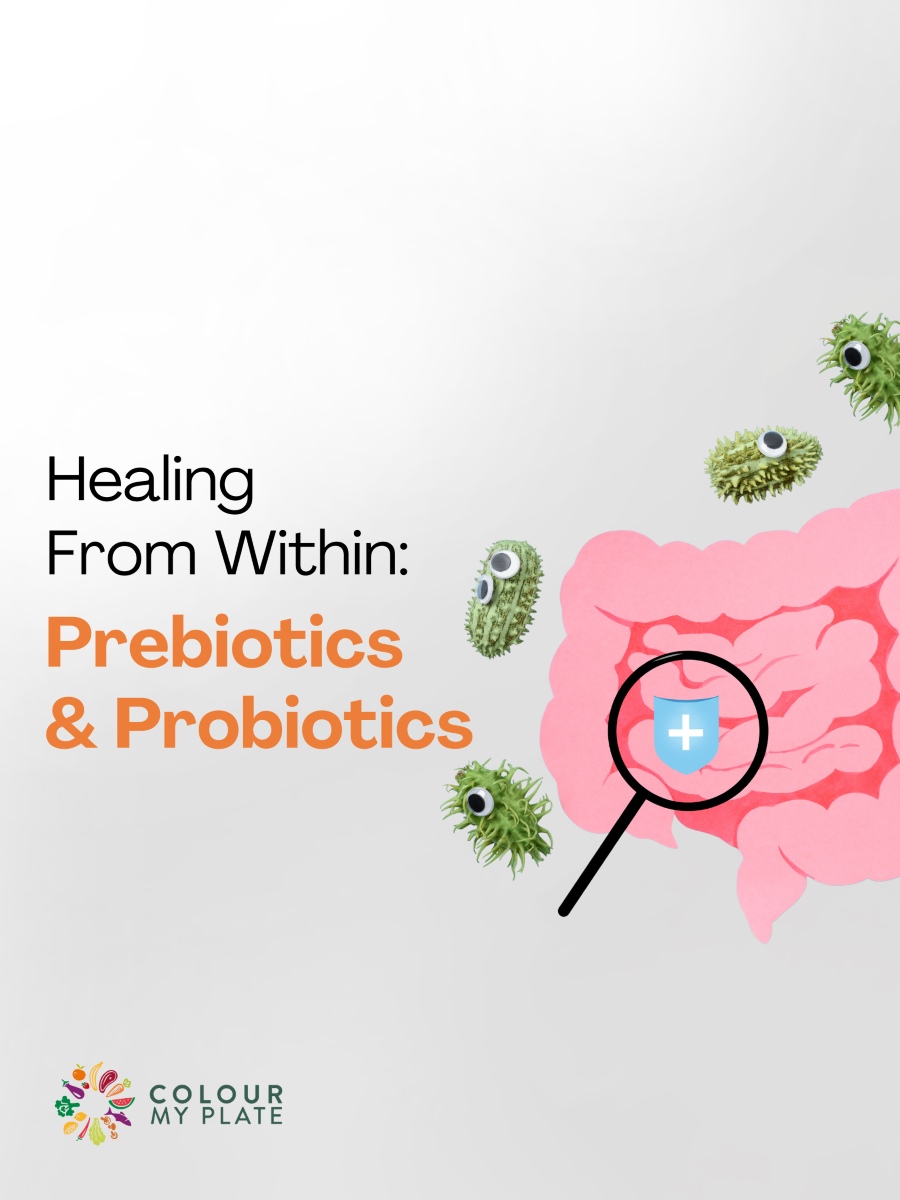
![]() 30 Oct 2024
30 Oct 2024
In the quest for a healthier gut, you may have come across the terms “prebiotics” and “probiotics.” While they are often mentioned together, these two elements play distinct roles in maintaining a balanced and thriving digestive system. Understanding the difference between them and how they work together can help you make informed choices about your diet and overall health.
Prebiotics, found in foods like onions, garlic, and whole grains, are non-digestible fibers that nourish beneficial gut bacteria, helping probiotics to grow and thrive. Without prebiotics, probiotics wouldn’t have the necessary environment to flourish and perform their vital functions effectively. You can find prebiotics in a variety of everyday foods, including onions, asparagus, garlic, whole grains, and bananas.
Probiotics which include live bacteria found in fermented foods like yogurt and kimchi, play an important role when consumed in adequate amounts. They offer health benefits by improving or restoring gut flora and maintaining the balance of good and bad bacteria in your digestive system, which is crucial for optimal gut health.
The relationship between prebiotics and probiotics is interconnected. Prebiotics act as food for probiotics, creating a favorable environment for these beneficial bacteria to multiply and thrive. Without them, probiotics would struggle to survive, as they wouldn’t have the necessary nutrients to support their growth and activity.
Probiotics are widely recognized for their role in promoting digestive health. They can help with:
Probiotics are often recommended to alleviate symptoms of digestive disorders like irritable bowel syndrome (IBS) and diarrhea.
By balancing gut flora, probiotics can support the immune system. Nutrient Absorption: A healthy gut can improve the absorption of essential nutrients.
To maximize the benefits of both, aim for a diverse diet rich in these elements. Regularly include prebiotic-rich foods and fermented products in your meals to support gut health.
However, if you are considering probiotic supplements, consult with your healthcare provider to choose the right type and dosage for your specific needs.
In conclusion, maintaining a healthy gut involves a balance of both prebiotics and probiotics. By incorporating prebiotic foods and probiotic-rich items into your diet, you can foster a thriving environment for your gut bacteria, ultimately supporting overall health and well-being.

We noticed you haven't completed your delivery details.

Your message is sent